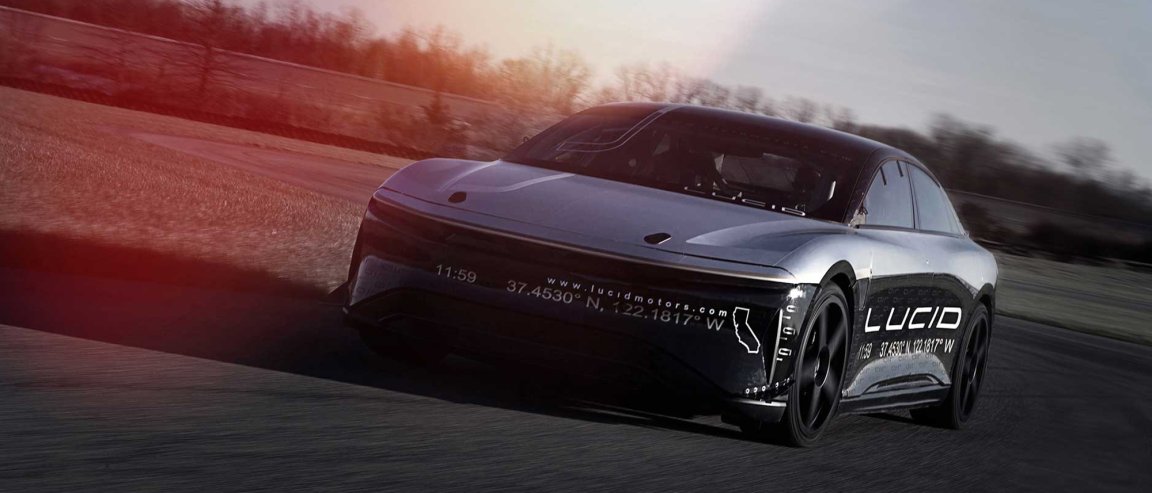
One Super-Fast EV
Lucid Motors just unveiled its luxury Lucid Air and an Alpha Speed Car prototype during the annual New York International Auto Show. Now, the California-based luxury automaker has shared a video of the vehicle’s first high-speed stability test.
During the test at the Transportation Research Center test track in Ohio, the all-electric Alpha Speed Car clocked a speed of 350 kmh (217 mph). That’s the same as a Ferrari LaFerrari.
These tests are relevant to the engineering process of the vehicle as they will allow the team to combine computer simulation models with real-world data to improve performance. According to Lucid Motors’ website:
The test, software-limited to 217 mph (350 km/h), was successful in demonstrating the capabilities of the car and in finding areas for improvement that could not be properly evaluated in static bench tests […] The collected data will now be used to finesse thermal and aero computer simulations and to make further performance improvements that will be tested later this year at higher speeds.
The company assures potential drivers, however, that the Air is more than just fast: “High-speed capability does not compromise our mission to develop a highly efficient vehicle. On the contrary, the focus on maximizing range provides the high power and aerodynamic efficiency that enables higher speeds.”
The Lucid Air is scheduled for production in 2019 and is largely considered a strong competitor for Tesla’s Model S. Priced at $52,500, the vehicle is expected to come equipped with autonomous-ready hardware. It will have a 400-mile range, a 1,000-horsepower engine, and a strong focus on passenger comfort and luxury.
Rise of Electric Vehicles
The diversity of electric vehicles (EV) coming onto the market demonstrates the increased demand for electric alternatives to traditional high-performance transport.
If we really want to reduce carbon emissions, ending our reliance on traditional forms of transportation is one way to do it, so the arrival of numerous EV options is certainly welcome. In addition, many of these cars are being built with advanced autonomous capabilities, which could mean that traffic jams, a perennial problem in urban areas, will be considerably reduced.
Furthermore, the government’s support for self-driving technology is drawn from its potential to help address common pedestrian and road safety issues. Given that most traffic-related accidents and fatalities are caused by human error, the rise of autonomous vehicles on the road would ultimately save lives.